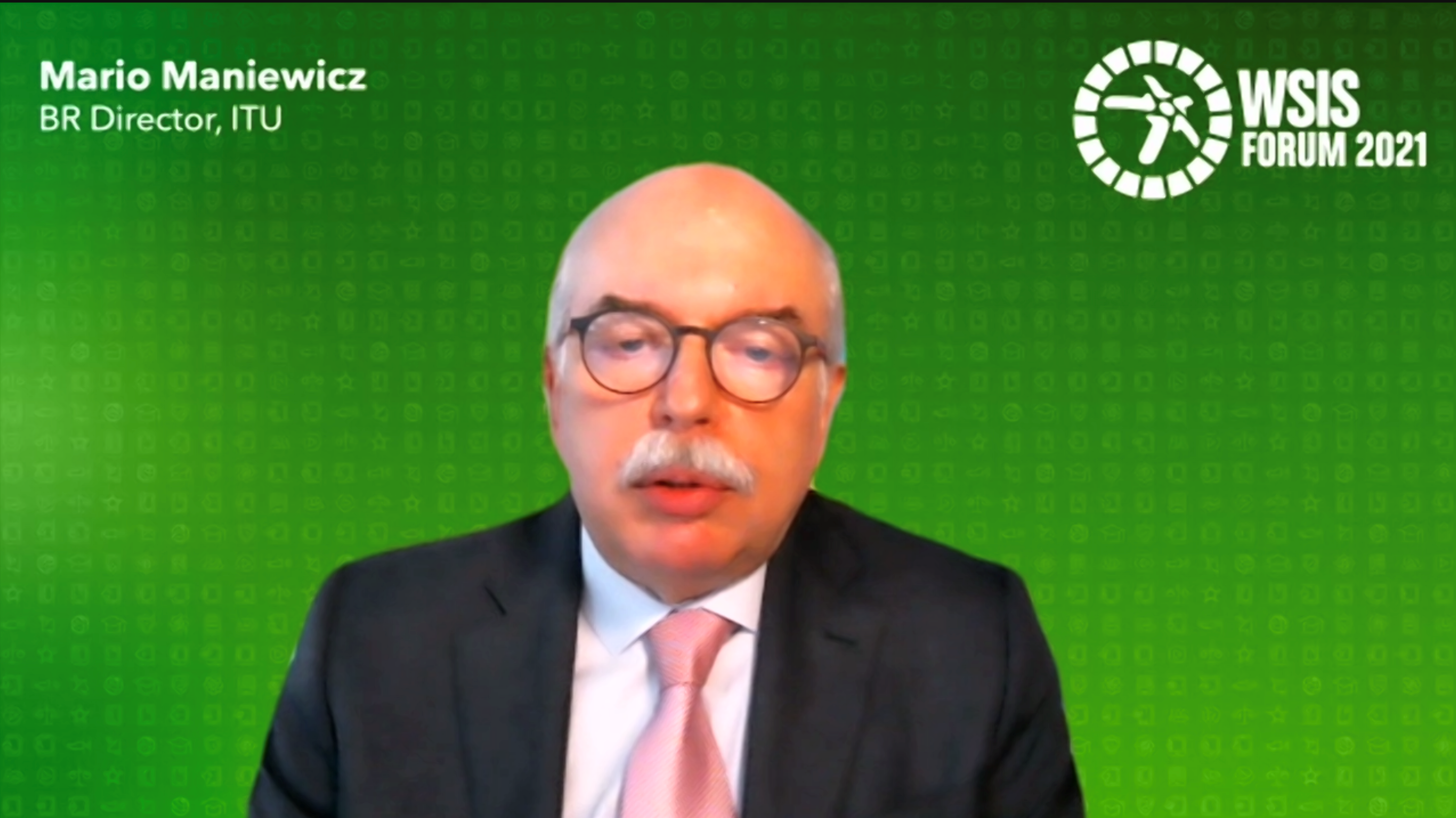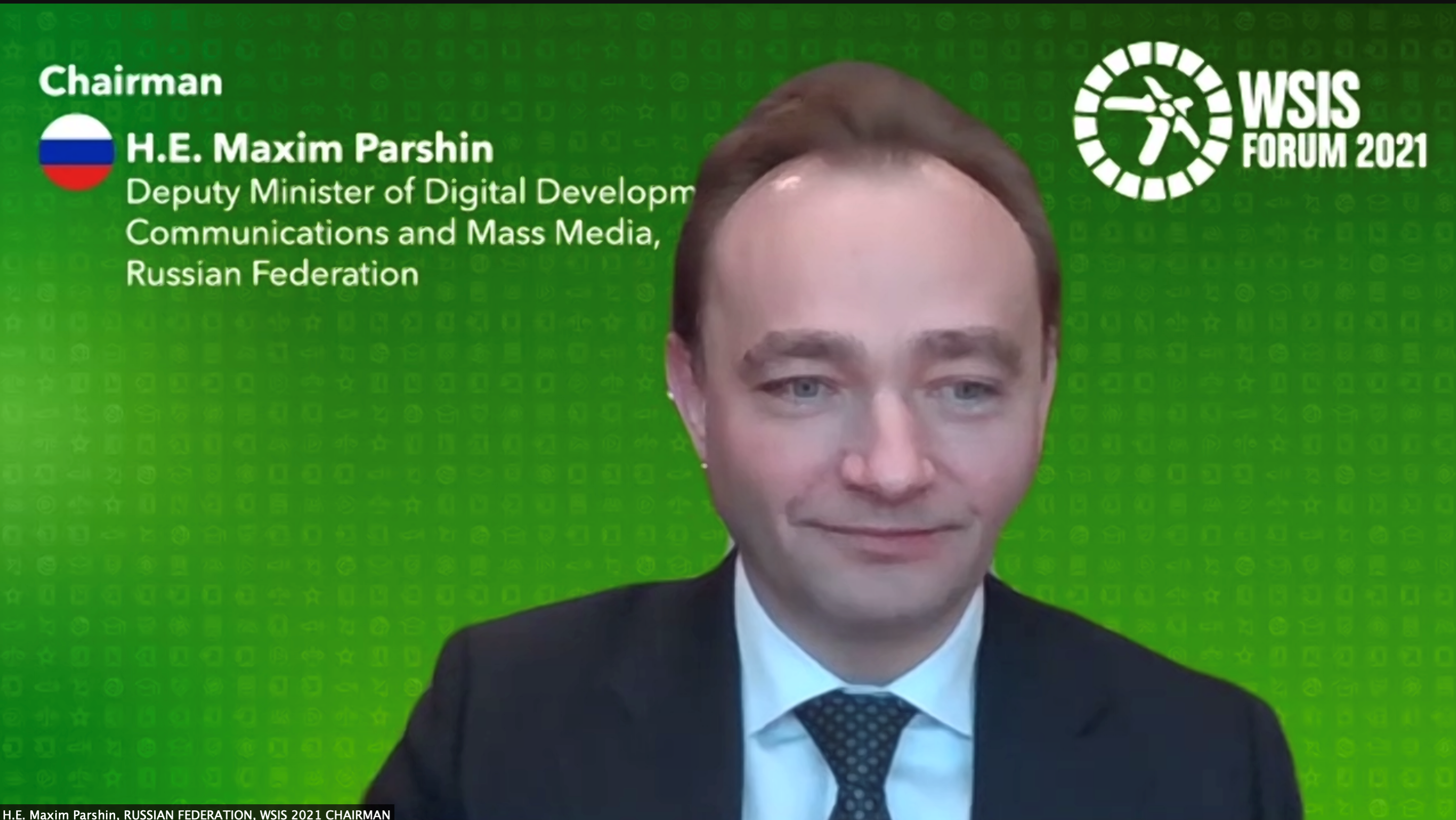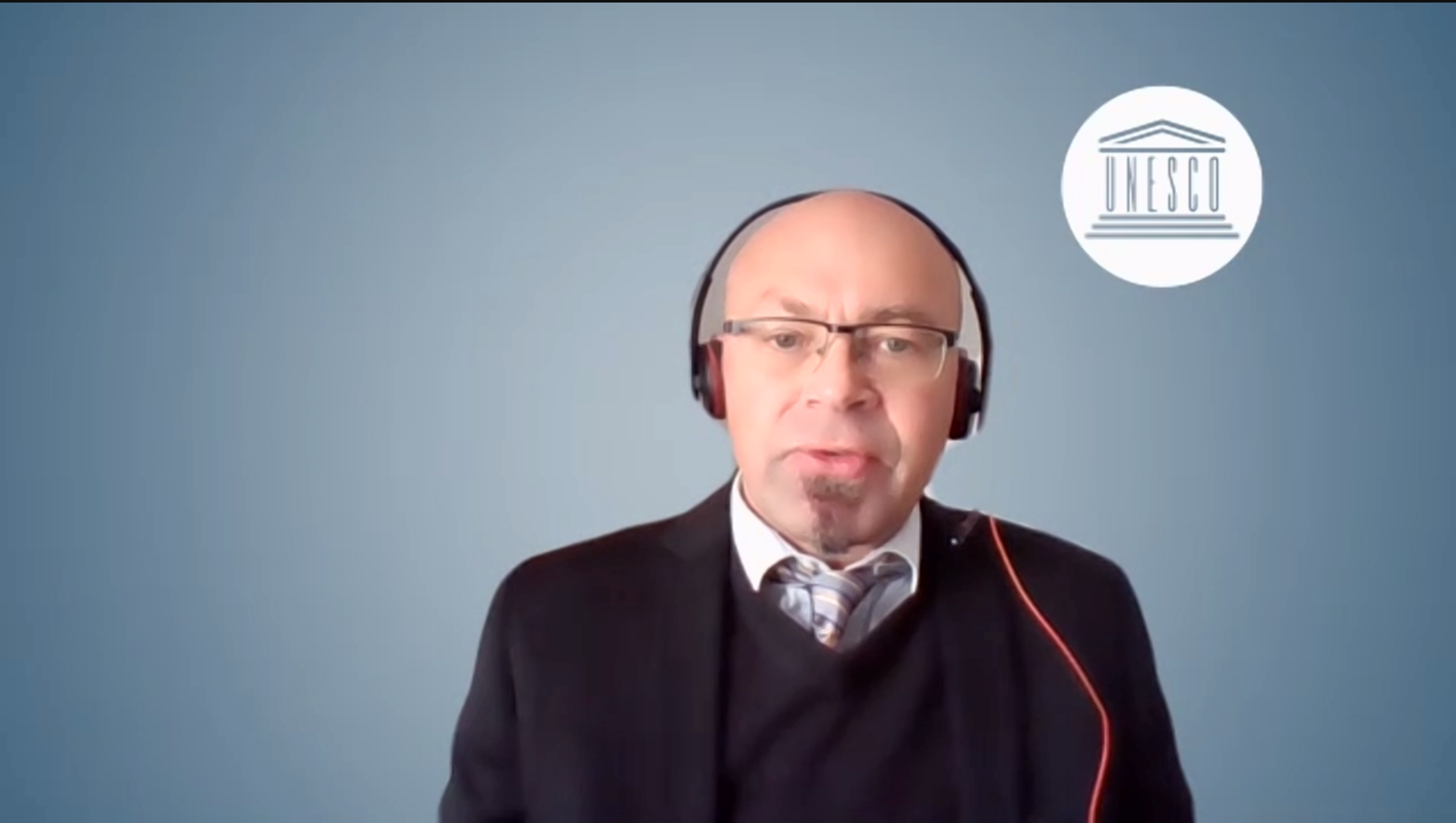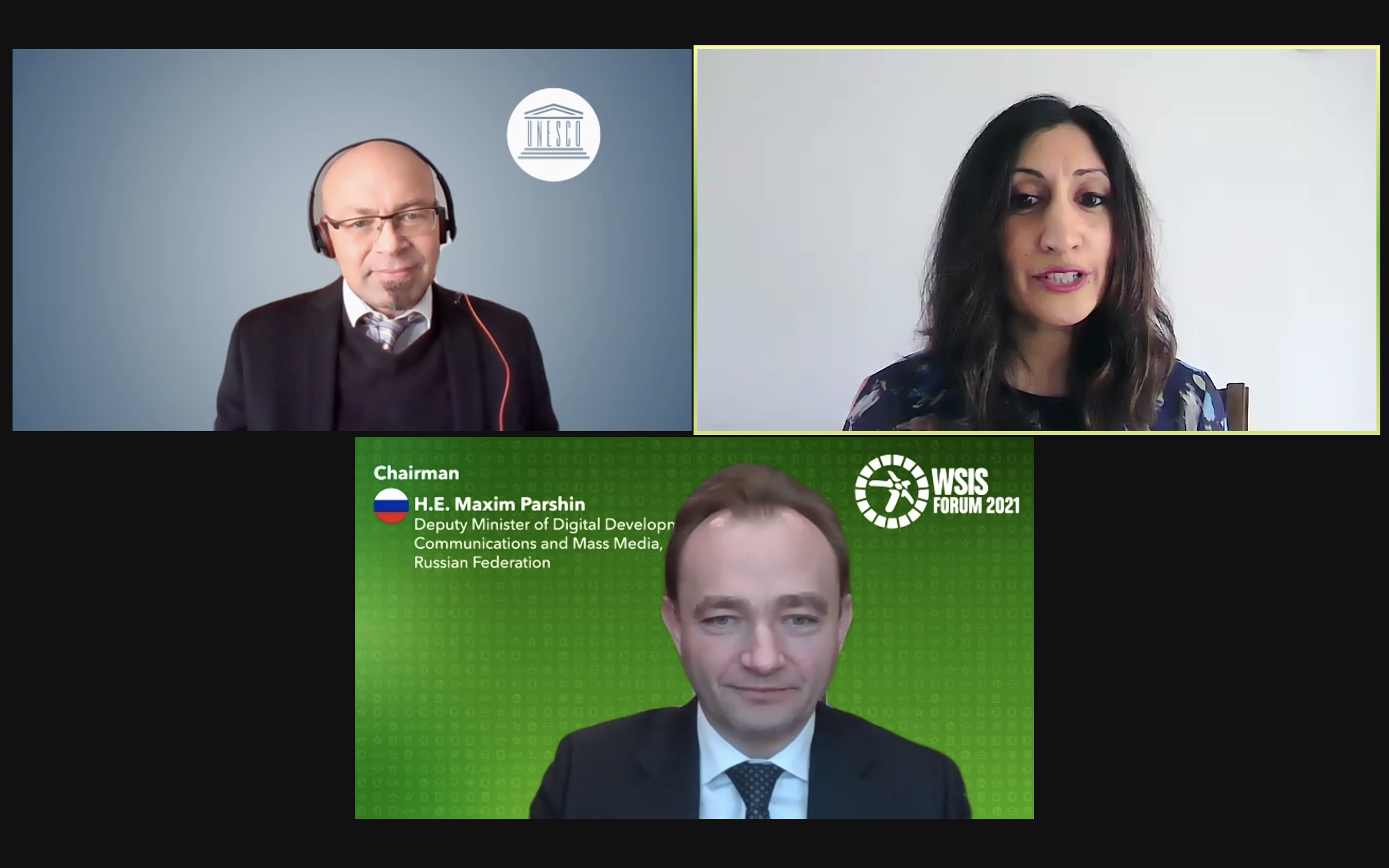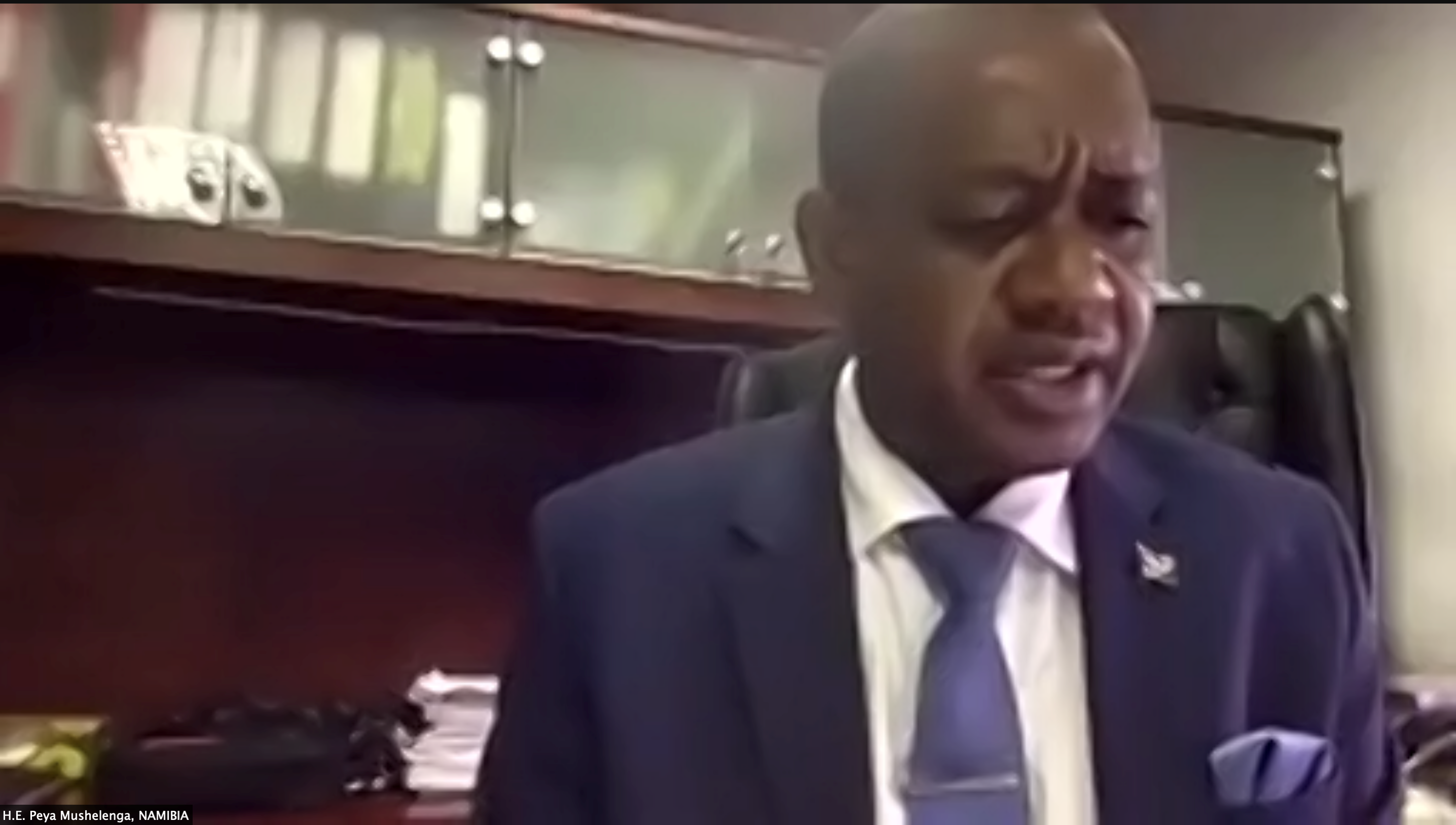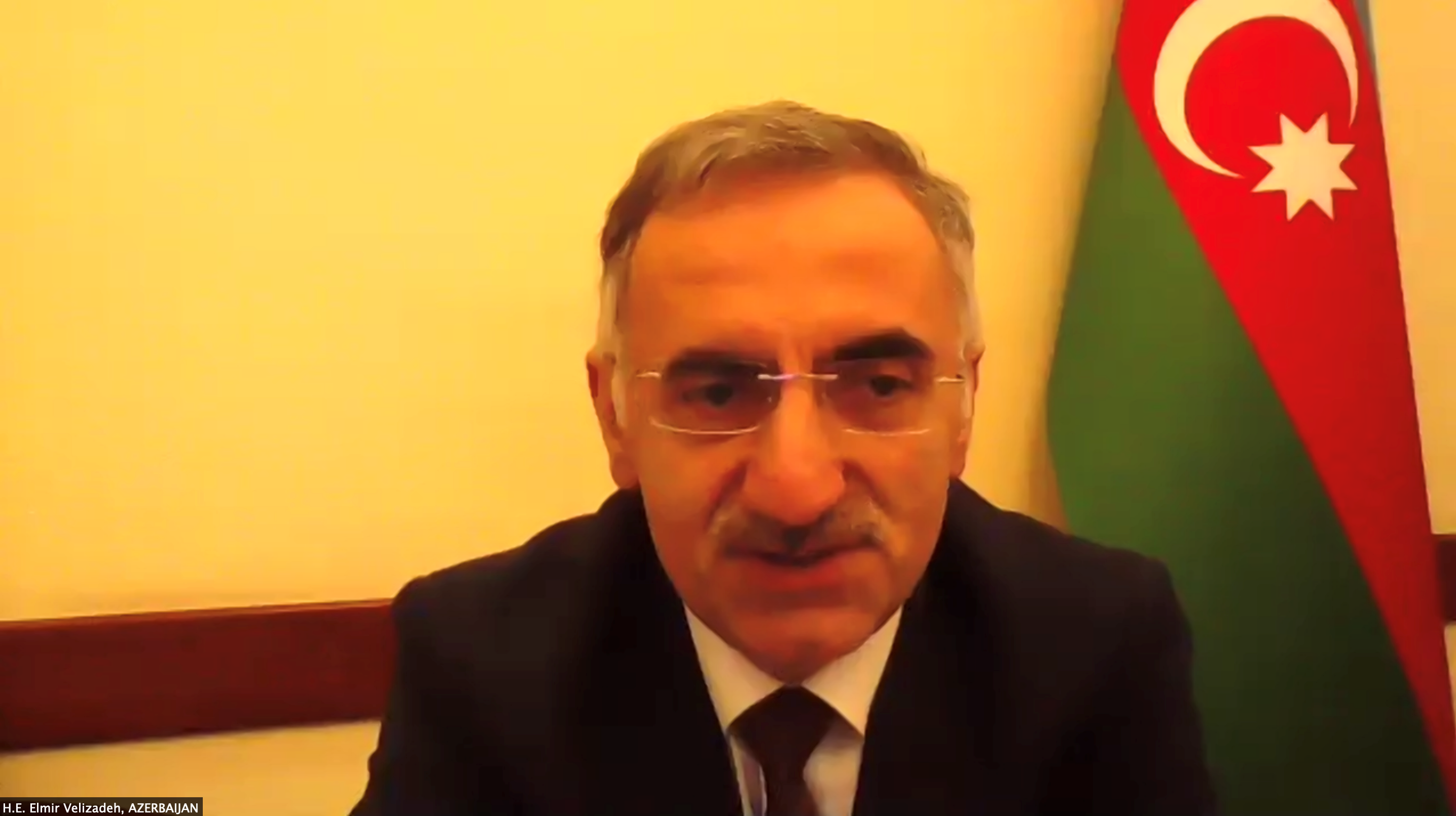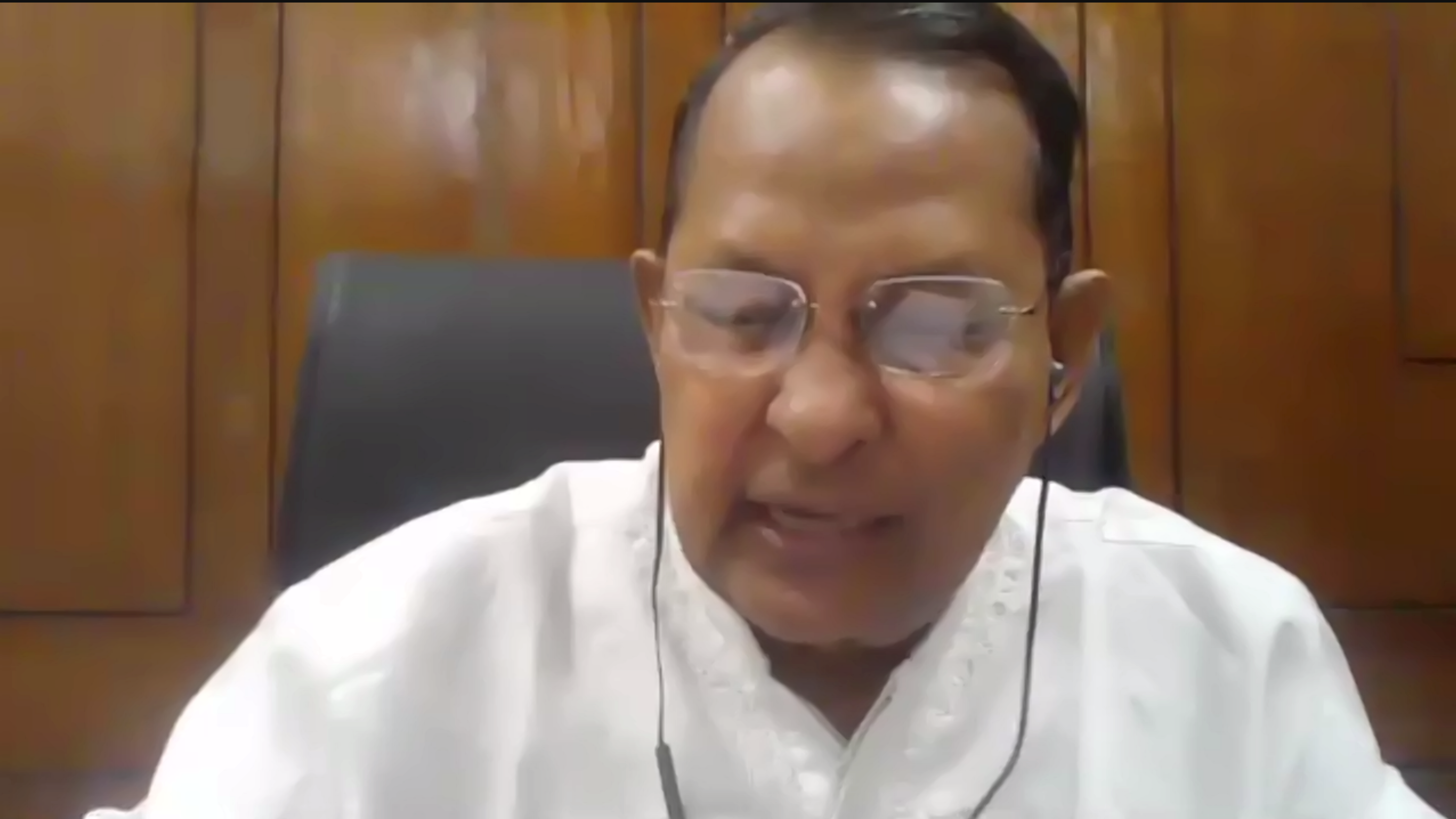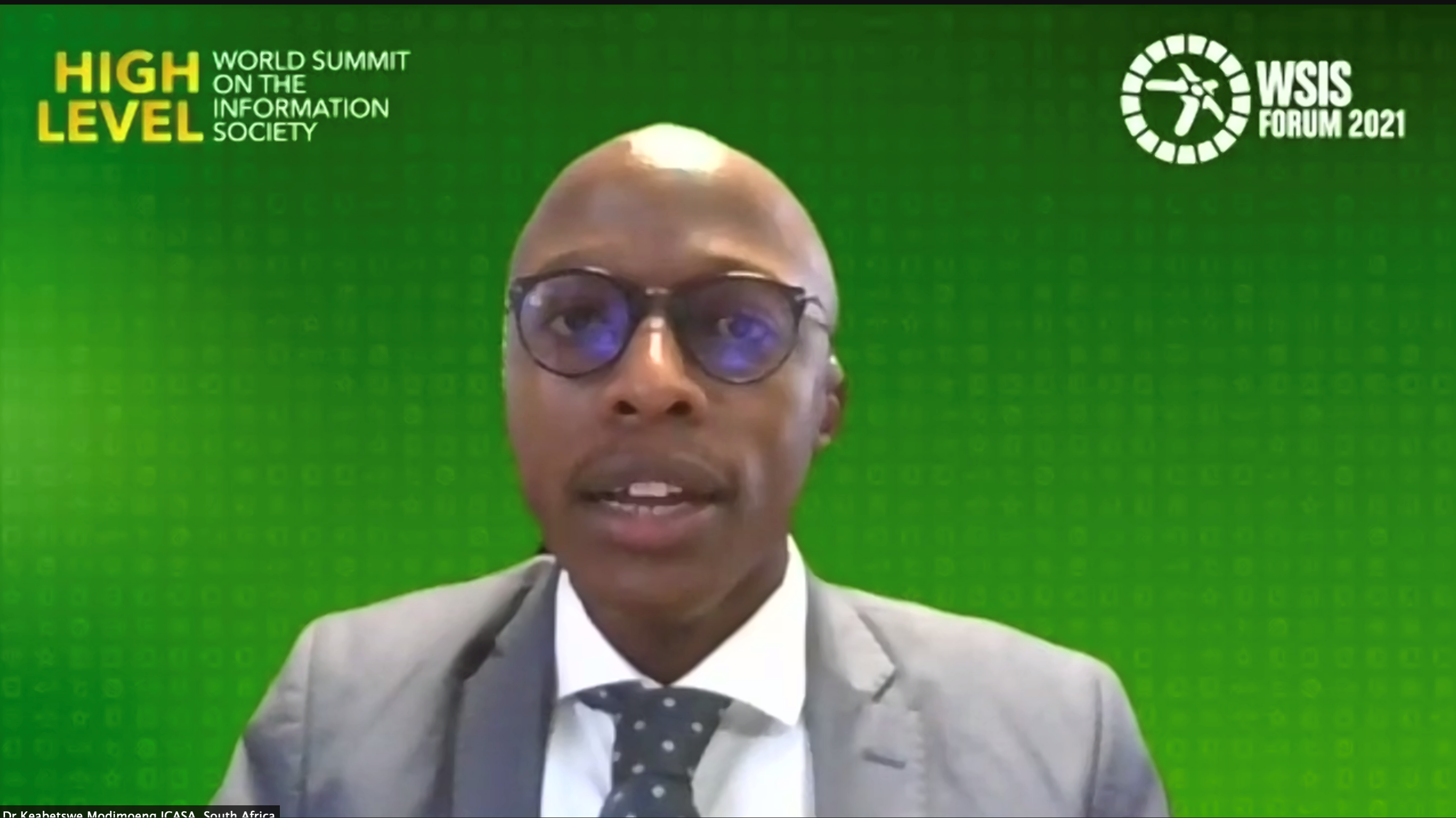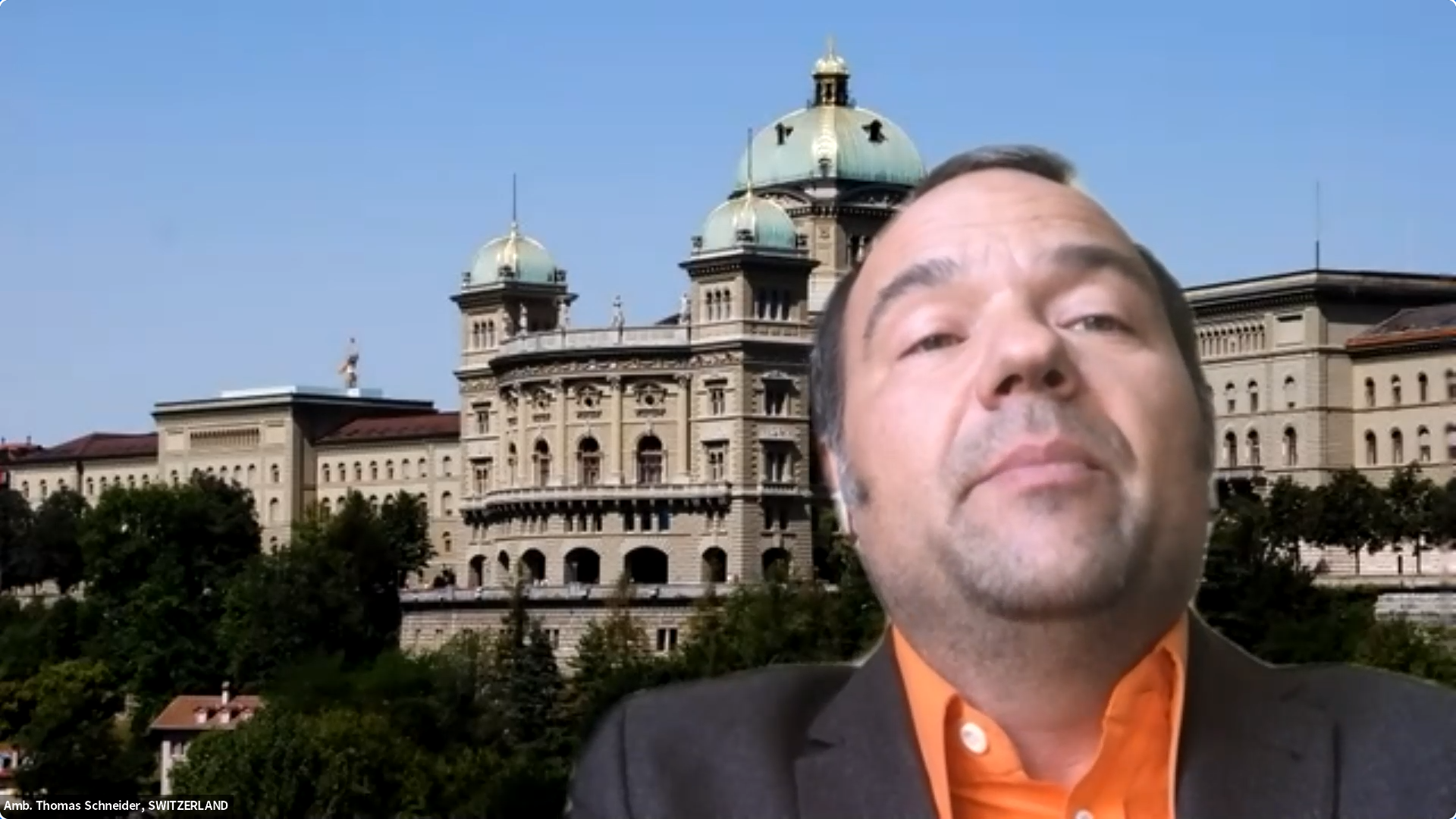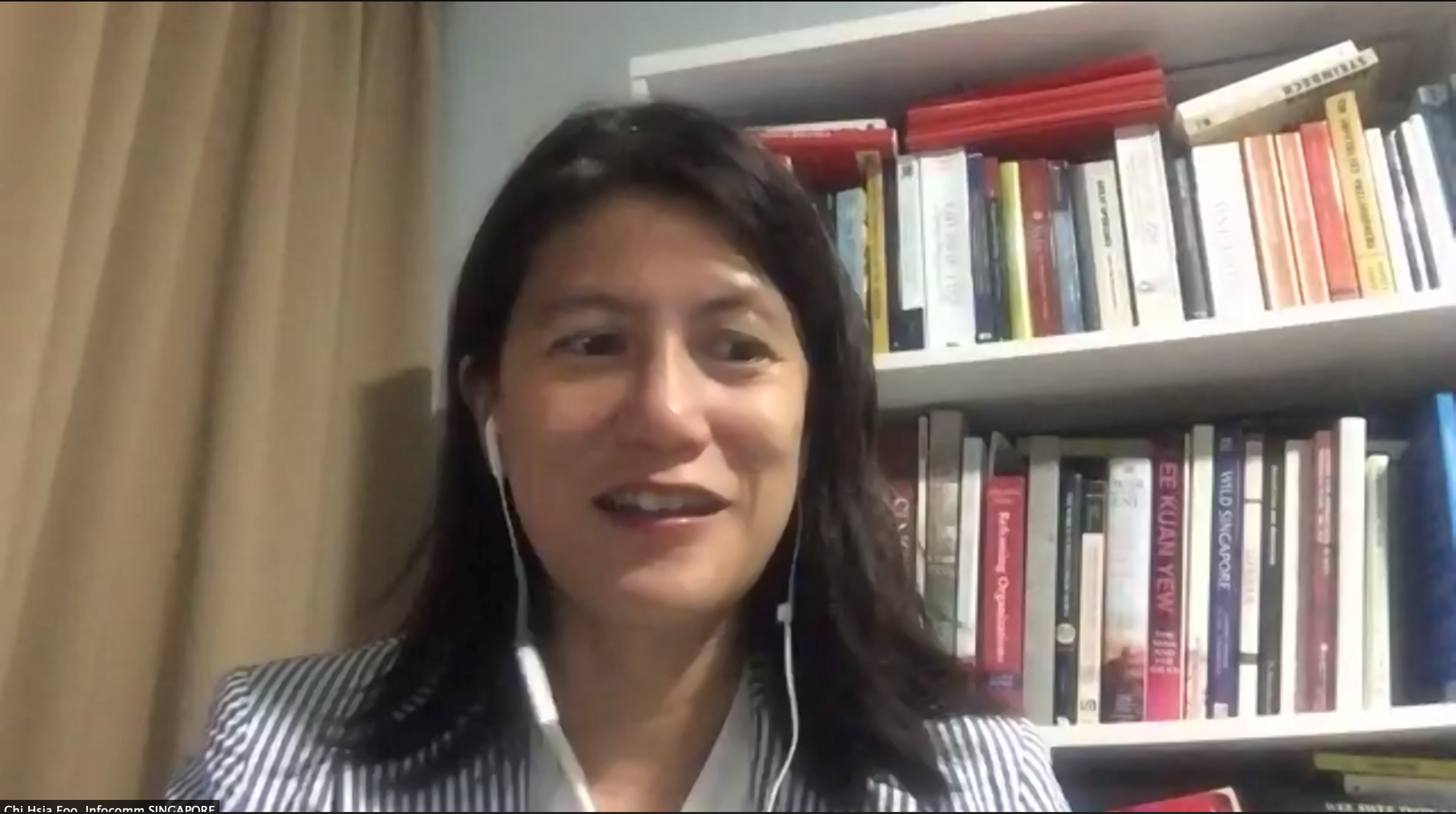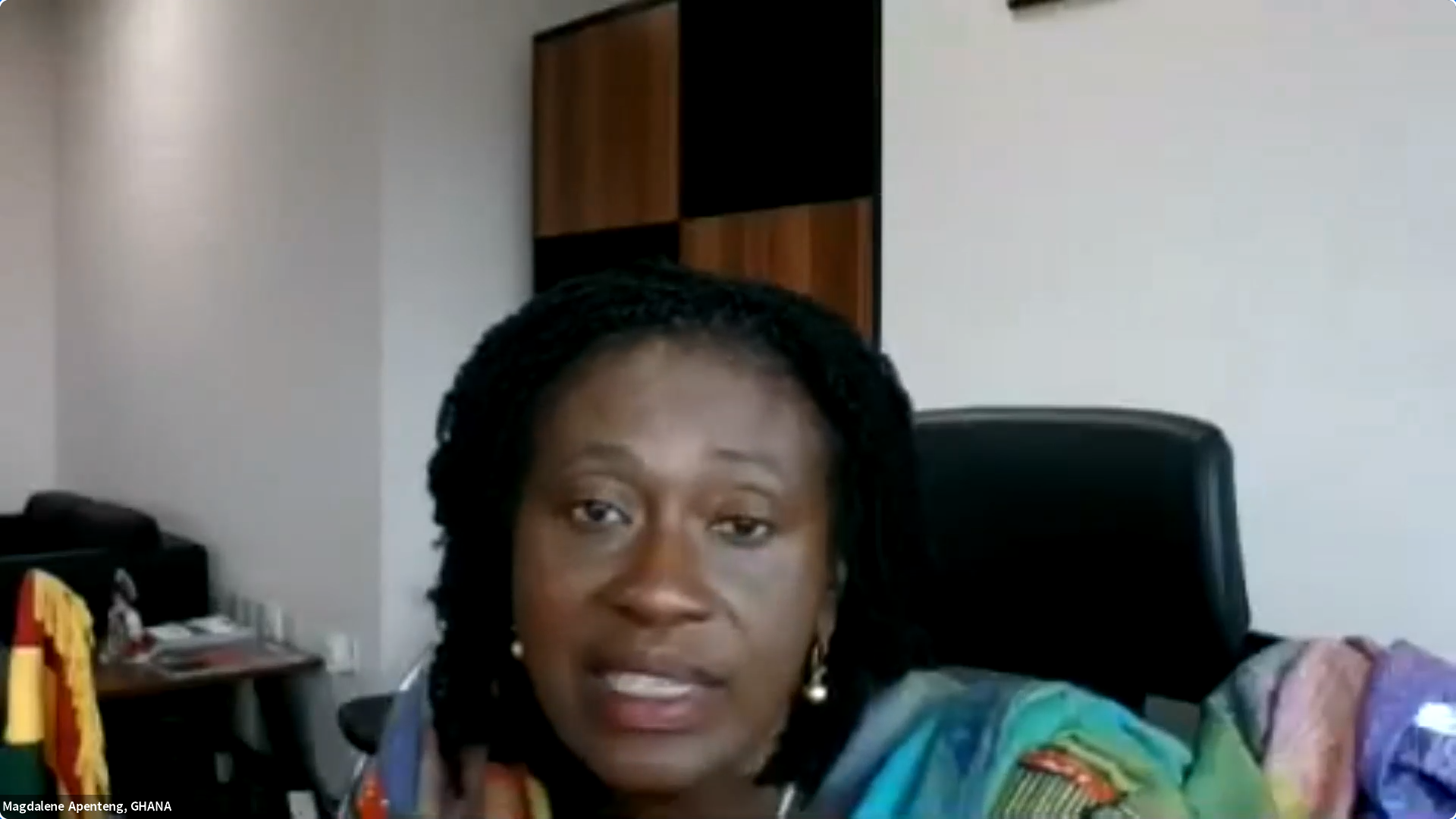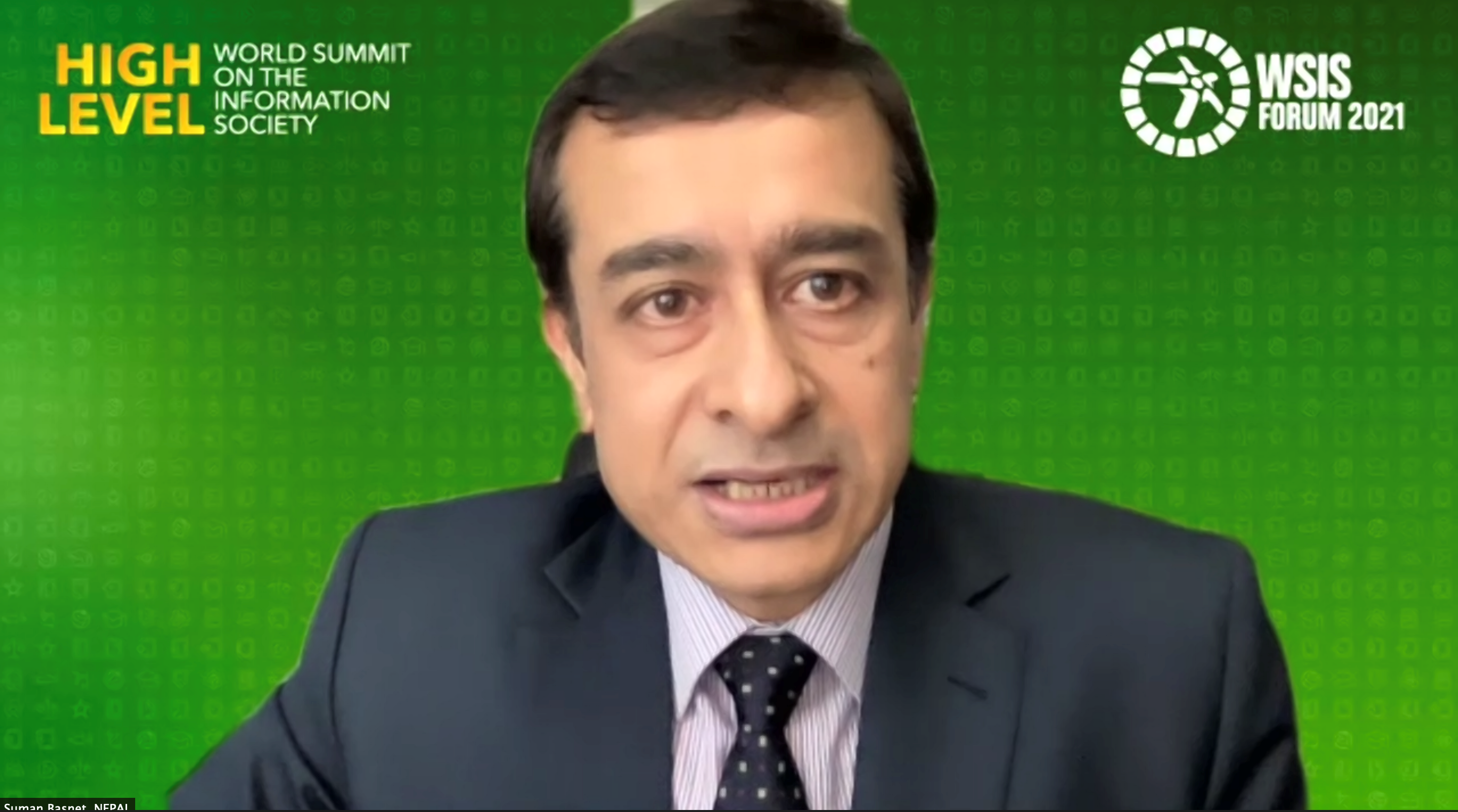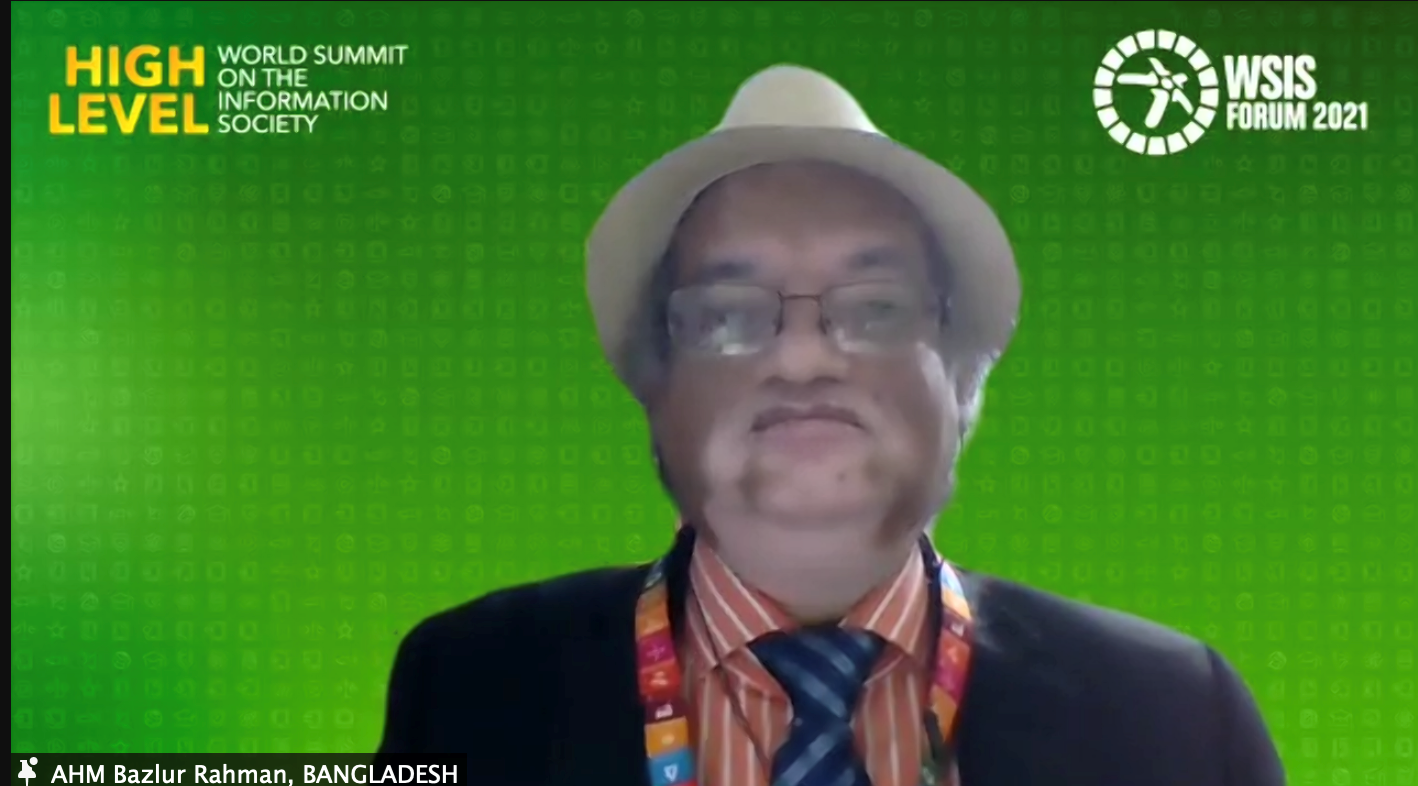High-Level Policy Session 7 : Inclusiveness, Access to Information and Knowledge for All / Media
WSIS
Session 166
Inclusiveness, Access to Information and Knowledge for All
The ability for all to access and contribute information, ideas and knowledge is essential in an inclusive Information Society.
The sharing and strengthening of global knowledge for development can be enhanced by removing barriers to equitable access to information for economic, social, political, health, cultural, educational, and scientific activities and by facilitating access to public domain information, including by universal design and the use of assistive technologies.
A rich public domain is an essential element for the growth of the Information Society, creating multiple benefits such as an educated public, new jobs, innovation, business opportunities, and the advancement of sciences. Information in the public domain should be easily accessible to support the Information Society, and protected from misappropriation. Public institutions such as libraries and archives, museums, cultural collections and other community-based access points should be strengthened so as to promote the preservation of documentary records and free and equitable access to information.
Geneva Declaration of Principles, https://www.itu.int/net/wsis/docs/geneva/official/dop.html
Media
The media — in their various forms and with a diversity of ownership—as an actor, have an essential role in the development of the Information Society and are recognized as an important contributor to freedom of expression and plurality of information.
a. Encourage the media - print and broadcast as well as new media - to continue to play an important role in the Information Society.
b.Encourage the development of domestic legislation that guarantees the independence and plurality of the media.
c. Take appropriate measures - consistent with freedom of expression - to combat illegal and harmful content in media content.
d. Encourage media professionals in developed countries to establish partnerships and networks with the media in developing ones, especially in the field of training.
e. Promote balanced and diverse portrayals of women and men by the media.
f. Reduce international imbalances affecting the media, particularly as regards infrastructure, technical resources and the development of human skills, taking full advantage of ICT tools in this regard.
g. Encourage traditional media to bridge the knowledge divide and to facilitate the flow of cultural content, particularly in rural areas.
Geneva Declaration of Principles, WSIS 2003, https://www.itu.int/net/wsis/docs/geneva/official/dop.html

Mr. Mario Maniewicz was elected Director of the ITU Radiocommunication Bureau at the ITU Plenipotentiary Conference 2018in Dubai, United Arab Emirates. He took office on 1 January 2019.
Mario Maniewicz is an electronic engineer specialized in telecommunications. He has been with the ITU for over 30 years, where he has served in high-level management positions in the Radiocommunication and Development Sectors as well as in ITU Regional Offices.
As Director, Mr. Maniewicz is responsible for the management of the Radiocommunication Bureau, which organizes and co-ordinates the work of the Radiocommunication Sector whose aim is to ensure the rational, equitable, efficient and economical use of the radio-frequency spectrum and satellite orbits.

Maxim Parshin was born on July 23, 1976 in Mytishchi, the Moscow Region.
In 1998 graduated from Lomonosov Moscow State University.
In 2001 completed post-graduate studies in Lomonosov Moscow State University.
In 2008 graduated from Moscow International Business School within Russian Foreign Trade Academy (MBA program).
2002–2013 — changed several positions in the Ministry of Economic Development of the Russian Federation.
In 2013 was appointed to the position of Deputy Head of the Russian Post Federal State Unitary Company.
2014–2015 — Deputy Head of the Federal Labor and Employment Agency.
2016–2018 — Head of the Department for the Development of Small and Medium-Sized Businesses and Competition of the Ministry of Economic Development of the Russian Federation.
Maxim Parshin was awarded the Certificate of Honour of the Government of the Russian Federation.
On August 16, 2018 was appointed to the position of Deputy Minister of Digital Development, Communications and Mass Media of the Russian Federation.

Project Lead, The Code to Change. Previously a software Tester/ Quality Assurance professional at Barclays Investment Bank in London with over 15 years in the IT Industry.
Meera is also a volunteer Area Director at Toastmasters International and is passionate about Leadership, Diversity & Inclusion, empowering others to achieve their best potential.


Mrs. Ursula Owusu-Ekuful (MP) is currently serving as the President’s Representative at the Ministry of Communications and Digitalization, she also serves as the Member of Parliament for Ablekuma South Constituency within the Greater Accra District in Ghana. Mrs. Owusu-Ekuful before her appointment as he Minister for Communications in 2017 was a Managing Consultant with N. U. Consult Legal - Governance and Gender Consultants, then she served as the Chairperson for the Social Development Sector Committee – a committee responsible for the development of policy interventions for women, children, persons with disability, the aged and all social intervention policies and programs for the NPP manifesto 2016.
She is a member of the Ghana Bar Association, an Executive Member of the International Federation of Women Lawyers (FIDA) Ghana, and a member of the African Women Lawyers Association (AWLA), Ghana.
She also Co-chaired the AU/EU Digital Economy Task Force.

In August 2002 he was elected Member of the Central Committee of SWAPO Party, the ruling parry of Namibia, He was re-elected in 2007, 2012 and 2017. Honourable Dr Mushelenga was elected to the Namibian National Assembly during the 2004 general elections, and re-elected 2009 and 2014 general elections. He was appointed Deputy Minister of Foreign Affairs, by His Excellency President Hifikepunye Pohamba, on 21 March 2010.
Honourable Dr Mushelenga is also a researcher and published author, with nine academic publications under his name, being three chapters in a book and six articles in peer review journals. As his contribution to the nation, since 2016 he has been lecturing one or two modules per year at the University of Namibia at post-graduate level on pro bono basis (meaning without any payment whatsoever).
Honourable Dr Mushelenga has attended numerous international conferences, including sessions of the United Nations General Assembly, and has travelled to more than sixty (60) countries in the world.

Mr. Elmir Velizadeh is appointed as Deputy Minister of Transport, Communications and High Technologies in February 02, 2018.
He started his early career as a specialist at the Office of the President of the Republic of Azerbaijan in 1991. In 1998, he was appointed as the Chief of the Center for Information Resources and Technologies of the Presidential Office. He worked as the Head of Information Resources and Technologies Department of the Office of the President of the Republic of Azerbaijan within the period from 2005 to 2007.
He was awarded the Taraggi Medal (Progress Medal) by the Order of the President of the Republic of Azerbaijan in 2015.
Mr. Velizadeh holds a Bachelor`s degree in Automated Control Systems from the Azerbaijan Oil and Chemistry Institute (currently Azerbaijan State Oil and Industry University). He is fluent in Russian and English languages.

Hasanul Haq Inu, is the President of the Jatiya Samajtantrik Dal (JSD), an ally of the ruling grand alliance, and a parliament member from Kushtia-2 constituency in the tenth Jatiya Sangsad polls, and the current Chairman, Parliamentary Standing Committee for Ministry of Information, Bangladesh Parliament. He is the Chairperson, Bangladesh Internet Governance Forum and all party groups of Agriculture-Food and Rural Development. Inu takes keen interest in writing and sports.
Inu started his political career in 1969, as the general secretary of Chhatra League in BUET. He hoisted the flag of 'Swadhin Bangla' on behalf of Swadhin Bangla Chhatra Parishad at Paltan Maidan on March 23, 1971, an official release said.He joined the Liberation Force and was the camp in-charge and trainer of Guerilla Training Centre of Bangladesh Liberation Force (BLF) also known as 'Mujib Bahini' at Tandua in India.Inu was made the founding general secretary of the Jatiya Krishak League in May, 1972 by Bangabandhu Sheikh Mujibur Rahman. He was the deputy chief of Gono Bahini and assisted Col (retd) Taher during the Sepoy -people uprising on November 7, 1975.

Dr Keabetswe Modimoeng is the 5th Executive Chairperson of the Independent Communications Authority of South Africa (ICASA) appointed in August 2020. In 2016 he was appointed to the Council of ICASA for a four-year term where he served three years as Councillor and the final year as Acting Chairperson. He is a corporate governance specialist with global Public Affairs experience.
Earlier in his career, he held corporate communications roles at Business Unity South Africa (BUSA) and Anglo American (Kumba Iron Ore). He is a former Sunday Times Labour and Business Journalist where he won the 2009 Workers World Productions Labour Journalist of the Year Award. Prior to joining ICASA, he was the Public Affairs and Corporate Citizenship Manager for Samsung Electronics (Africa) head office- with frequent interface reporting to the global headquarters in South Korea.
He previously served as Deputy Chairperson of Brand South Africa Board of Trustees (Presidential appointee), South African Weather Service Board, Member of Senate at the Tshwane University of Technology amongst others. Dr Modimoeng is an avid reader and published poet, recipient of the 2011 Sol Plaatje European Union Poetry Award.

Thomas Schneider is Ambassador and Director of International Affairs at the Swiss Federal Office of Communications (OFCOM) in the Federal Department of the Environment, Transport, Energy and Communications (DETEC). He is a long-standing expert in digital governance and in the governance of the information and knowledge society and artificial intelligence. He is leading the Swiss delegation in various key international fora in these fields.
Since 2003, he has been coordinating the Swiss activities with regard to the implementation and follow-up of the UN World Summit on the Information Society (WSIS). From 2014-2017, he was the chair of ICANN’s Governmental Advisory Committee (GAC) and in this role negotiated the compromise among governments regarding the “IANA Stewardship transition”, the biggest reform in the ICANN system. He was responsible for the organization of the 12th UN Internet Governance Forum (IGF) in Geneva in December 2017 on behalf of the Swiss government and co-chair of the IGF’s Multistakeholder Advisory Group in 2017. Since 2020, he is vice-chair of the OECD’s Committee for Digital Economy Policy, and vice-chair of the Council of Europe’s Steering Committee on Media and Information Society (CDMSI) – which he chaired from 2018-2019 – and amember of the bureau of the CoE’s Ad Hoc Committee on Artificial Intelligence (CAHAI). He is the president of the EuroDIG Support Association (since 2012). He has been participating in the meetings of the UN Secretary General’s High Level Panel on Digital Cooperation, as personal advisor of former Swiss president, Ms. Doris Leuthard (2018-2019).

Mr. Omer Abdullah Karagözoğlu is the Chairman of Board and President of the Information and Communication Technologies Authority (ICTA) of the Republic of Turkey since August 13, 2018. He was born in Glasgow, Scotland in 1975. He is an Electrical and Electronic Engineer graduated from Eastern Mediterranean University.
Mr. Karagözoğlu worked as a software engineer at Istanbul Water and Sewerage Administration (İSKİ) of Istanbul Metropolitan Municipality (IMM) from 2002 to 2004. Between 2002 and 2016, he held various managerial positions at BELBIM, a technology company of IMM. He served as the Adviser to Chairman and Board Member of the ICTA from 2016 to August 13, 2018.

Gilbert Camacho Mora is a Commissioner of the Board of Directors of the Superintendency of Telecommunications (SUTEL) in Costa Rica. He is a telecommunication’s engineer and master’s in business administration (MBA). He has been Chairman of Board of Directors in three times (2015, 2017, 2019).

Ms Foo Chi Hsia is High Commissioner of the Republic of Singapore to the United Kingdom.
Ms Foo graduated with a Bachelor of Law, and obtained a Master in Public Management, both from the National University of Singapore.
Ms Foo served at the Singapore Permanent Mission to the United Nations in New York from 1997 to 2003, during Singapore’s only term as a non-permanent member of the United Nations Security Council from 2001 to 2002. At the Ministry HQ, her various appointments include being responsible for Americas, Southeast Asia, South Asia, Middle East, Africa, Singapore’s only case before the International Court of Justice, as well as APEC and WTO matters.
Ms Foo was conferred the Public Administration Medal by the Government of Singapore in 2008, and the Dame Commander of the Victorian Order (DCVO) by Her Majesty The Queen Elizabeth II in 2014.

Suman Basnet is a media professional from Nepal. He currently serves as the Asia-Pacific Regional Director of the World Association of Community Radio Broadcasters (AMARC). He works closely with community broadcasters and advocates of freedom of expression to promote people’s right to broadcast, to strategize for people’s participation, and to promote sustainability of community radios. Policy advocacy, supporting marginalized communities to access community broadcasting, promotion of gender diversity in community radios, technological adaptation, network development and using community radios for disaster risk reduction are some of his main areas of work.
In addition to organizing numerous international seminar and conferences in different parts of the world, Suman has spoken in international symposiums, workshops and seminars on issues ranging from media legislation to community participation, and from sustainable growth of community media to building alliances with social movement in the Asia-Pacific region.

A Pioneer for Giving Voices to the Voiceless People through Community Radio, ICT & Social Dialogue in Bangladesh. He has seen first-hand how rural disadvantage people in Bangladesh are deprived of their basic rights, freedom of expression and are subject to discrimination in many areas of their lives in line with VOICE POVERTY.
He has made it his mission to work for the improvement of rural disadvantage people through an innovative social model like Giving Voices to the Voiceless People through Community Radio, ICT & Social Dialogue in Bangladesh. Having spent over two and half decades in the community media, ICT4D & social dialogue in line with voices to be heard!
Now around 20 Community Radio and Community Visual Radio stations broadcasting altogether 170 hours program on social, political, cultural, environmental & economical aimed at empowering of the rural disadvantage people in Bangladesh.
He heads up the Bangladesh NGOs Network for Radio and Communication, one of the leading and pioneering media developments related civil society organization (CSO) in Bangladesh, and is the Special Consultative Status with the Economic and Social Council (ECOSOC) accredited with World Summit on the Information Society (WSIS) of the United Nations and UN WSIS prize winner 2016 and Champion 2017, 2019 and 2020 for promoting media development & ICT4D.
-
 C1. The role of governments and all stakeholders in the promotion of ICTs for development
C1. The role of governments and all stakeholders in the promotion of ICTs for development
-
 C2. Information and communication infrastructure
C2. Information and communication infrastructure
-
 C3. Access to information and knowledge
C3. Access to information and knowledge
-
 C4. Capacity building
C4. Capacity building
-
 C5. Building confidence and security in use of ICTs
C5. Building confidence and security in use of ICTs
-
 C6. Enabling environment
C6. Enabling environment
-
 C7. ICT applications: benefits in all aspects of life — E-government
C7. ICT applications: benefits in all aspects of life — E-government
-
 C7. ICT applications: benefits in all aspects of life — E-business
C7. ICT applications: benefits in all aspects of life — E-business
-
 C7. ICT applications: benefits in all aspects of life — E-learning
C7. ICT applications: benefits in all aspects of life — E-learning
-
 C7. ICT applications: benefits in all aspects of life — E-health
C7. ICT applications: benefits in all aspects of life — E-health
-
 C7. ICT applications: benefits in all aspects of life — E-employment
C7. ICT applications: benefits in all aspects of life — E-employment
-
 C7. ICT applications: benefits in all aspects of life — E-environment
C7. ICT applications: benefits in all aspects of life — E-environment
-
 C7. ICT applications: benefits in all aspects of life — E-agriculture
C7. ICT applications: benefits in all aspects of life — E-agriculture
-
 C7. ICT applications: benefits in all aspects of life — E-science
C7. ICT applications: benefits in all aspects of life — E-science
-
 C8. Cultural diversity and identity, linguistic diversity and local content
C8. Cultural diversity and identity, linguistic diversity and local content
-
 C9. Media
C9. Media
-
 C10. Ethical dimensions of the Information Society
C10. Ethical dimensions of the Information Society
-
 Goal 3: Ensure healthy lives and promote well-being for all
Goal 3: Ensure healthy lives and promote well-being for all
-
 Goal 4: Ensure inclusive and equitable quality education and promote lifelong learning opportunities for all
Goal 4: Ensure inclusive and equitable quality education and promote lifelong learning opportunities for all
-
 Goal 5: Achieve gender equality and empower all women and girls
Goal 5: Achieve gender equality and empower all women and girls
-
 Goal 8: Promote inclusive and sustainable economic growth, employment and decent work for all
Goal 8: Promote inclusive and sustainable economic growth, employment and decent work for all
-
 Goal 11: Make cities inclusive, safe, resilient and sustainable
Goal 11: Make cities inclusive, safe, resilient and sustainable
-
 Goal 16: Promote just, peaceful and inclusive societies
Goal 16: Promote just, peaceful and inclusive societies

